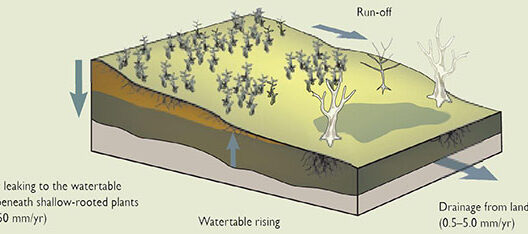Japan, an island nation renowned for its rich cultural heritage and breathtaking landscapes, is grappling with the existential threats posed by climate change. As a country comprising over 6,800 islands, Japan faces a constellation of challenges unique to its geographical configuration. This essay will elucidate the multifaceted impacts of global warming on Japan, exploring key areas such as rising sea levels, intensifying natural disasters, biodiversity loss, and socio-economic ramifications.
The specter of rising sea levels looms large over Japan. Projections suggest that by the end of the century, sea levels could rise by as much as one meter, profoundly threatening coastal urban centers like Tokyo, Yokohama, and Osaka. These megacities, home to millions, are not only hubs of economic activity but are also pivotal to Japan’s cultural identity. The encroachment of saltwater could jeopardize freshwater supplies, disrupt local fisheries, and erode coastal infrastructures. This phenomenon poses a dire risk of displacement for communities, leading to potential socio-political strife and the erosion of cultural mores tied to the land.
Moreover, global warming has precipitated a paradigm shift in the frequency and intensity of natural disasters. Japan, situated along the Pacific Ring of Fire, is already susceptible to seismic activities like earthquakes and volcanic eruptions. However, the amplification of severe weather events due to climate change presents an additional layer of peril. Typhoons are becoming more frequent and more intense, bringing with them torrential rains and devastating winds. The catastrophic impact of Typhoon Hagibis in 2019, which caused record rainfall and devastating floods, underscores the urgent need for a paradigm shift in disaster preparedness and response strategies.
Disaster resilience is becoming increasingly imperative. Japan has invested substantial resources into developing advanced early warning systems and fortified infrastructure to mitigate the impacts of natural disasters. Technological innovations, such as AI and machine learning, are being integrated into storm tracking and disaster management systems, enhancing predictive capabilities. Nevertheless, while technology plays a pivotal role in resilience, it cannot wholly obviate the need for comprehensive policy reform and community empowerment initiatives.
Accompanying the physical dangers posed by climate change, there exists a profound threat to Japan’s biodiversity. The nation’s unique ecosystems, which include temperate rainforests, coastal wetlands, and alpine environments, are at risk from habitat degradation and species extinction. Marine life, essential to both the nutritional and economic fabric of Japanese society, faces severe threats due to rising ocean temperatures and acidification. Coral reefs, often referred to as the “rainforests of the sea,” are particularly vulnerable. As water temperatures rise, coral bleaching events increase, leading to declines in fish populations and disrupted marine food webs. This not only impacts ecological diversity but also threatens traditional fishing industries, an integral component of Japan’s cultural and gastronomic identity.
In response to these challenges, Japan’s government has made commitments to reduce greenhouse gas emissions. The target of achieving carbon neutrality by 2050 was underscored by pledges to enhance renewable energy capacities. Currently, Japan relies heavily on nuclear energy, as evidenced by the aftermath of the Fukushima disaster, which necessitated a reassessment of energy policy. Expansion of solar, wind, and geothermal renewable energy sources is pivotal to sustainably address energy needs while simultaneously mitigating environmental impacts. The incorporation of sustainable practices in urban planning, such as the development of green spaces and energy-efficient infrastructure, is also essential to foster growth in harmony with nature.
Education plays a critical role in climate adaptation and mitigation efforts. Community awareness campaigns designed to foster environmental stewardship are essential. Involving citizens in sustainability initiatives encourages collective responsibility and empowers individuals to contribute to climate action. School curriculums increasingly emphasize the importance of environmental education, aiming to cultivate a generation that values and prioritizes ecological well-being.
International cooperation is yet another pillar in combatting climate change. Japan is actively engaged in global environmental agreements and initiatives. The Paris Agreement serves as a framework for global collaboration to limit temperature increases and reduce pollutant emissions. Through diplomatic channels, Japan promotes technological exchange and capacity building in vulnerable countries, exhibiting leadership in global climate advocacy.
Nevertheless, the path forward is laden with obstacles. The challenge lies not just in technological solutions or policy reforms but in nurturing a cultural paradigm that prioritizes sustainability over short-term prosperity. This necessitates a multifaceted approach encompassing economic transition, social equity, and environmental conservation. By fostering interdisciplinary dialogue and collaboration among stakeholders, including government agencies, private enterprises, and civil society, Japan can forge a viable path toward resilience in the face of climate adversity.
In conclusion, Japan stands at a crossroads, wherein its response to climate change will not only determine the survival of its ecosystems and cultures but will also serve as a testament to its capacity for innovation and adaptation. The repercussions of global warming extend far beyond isolated environmental concerns; they permeate every facet of life in this island nation. The choices made today will indelibly shape the future, and embracing a holistic, forward-thinking approach is crucial for safeguarding both Japan’s natural heritage and its people’s livelihoods. Striking a balance between human ambition and ecological integrity is imperative as this resilient nation navigates the tumultuous waters of climate change.







